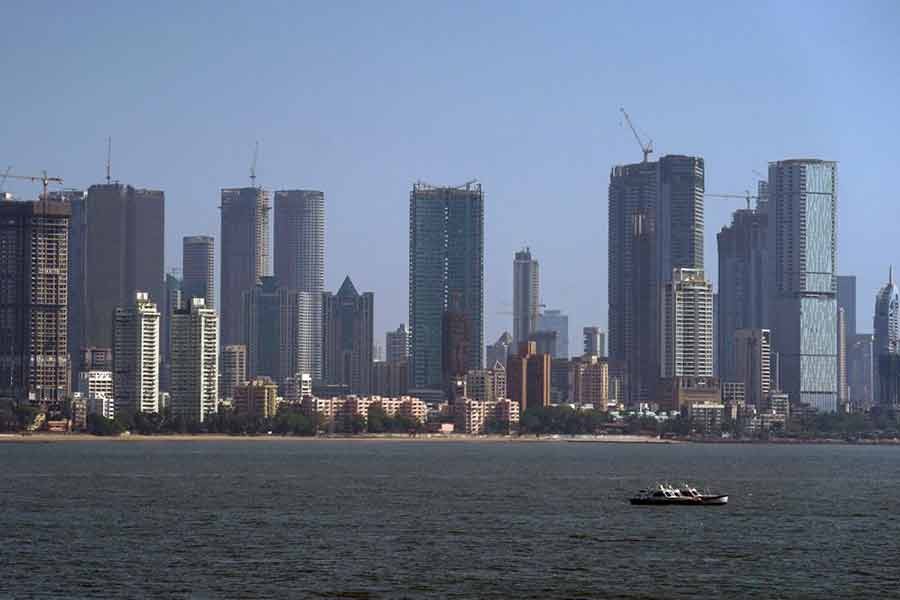
Published :
Updated :

Amidst the hopes of a V-shaped recovery of the Indian economy, the National Statistical Office (NSO) had recently estimated that India's economic growth has surged to 20.1 per cent in the April-June quarter, despite a devastating second wave of Covid-19, while the gross domestic product (GDP) had contracted by 24.4 per cent in the April-June quarter of 2020-21.
Supporting these estimates, in its recently launched Trade and Development Report 2021, United Nations Conference on Trade and Development (UNCTAD) has estimated global growth to hit 5.3 per cent in 2021 and growth in India to hit 7.2 per cent.
GROWTH PROSPECTS: According to the report, India showed a strong quarterly growth of 1.9 per cent in the first quarter of 2021, on the back of the momentum of the second half of 2020 and supported by government spending in goods and services.
Meanwhile, a severe and broadly unanticipated second wave of the pandemic hit the country in the second quarter, on top of rising food and general price inflation, forcing widespread lockdowns and drastic consumption and investment adjustments.
Given the inherent fragilities, India's growth in 2021 as a whole is estimated at 7.2 per cent, which is one of the fastest compared to most countries in the analysis, but is still not sufficient to regain the pre-Covid-19 income level.
However, going forward, the economy is likely to experience a deceleration of growth to 6.7 per cent growth in 2022. Beyond that, and even assuming the pandemic is fully under control, the situation is looking increasingly precarious for many emerging economies. To revive and sustain growth, action is needed both at the international and national levels.
The report strongly supports India's proposed temporary suspension of the World Trade Organization (WTO) TRIPS waiver, which is considered as a necessary step to enable the local manufacture of vaccines in developing countries but is being resisted by some advanced economies.
The need for the waiver increases in the face of the inability of COVAX and C-TAP schemes to mobilise the requisite resources from Northern governments and corporations.
Building resilient growth also requires a global strategy that mitigates the threat of global warming whilst simultaneously addressing the inequities and fragilities of a financialised world.
Given the existing constraints on developing countries, new sources of finance are required, including a significant scaling up of support from the international community in line with its commitment to common but differentiated responsibilities.
A ROBUST PUBLIC SECTOR: At the national level, efforts are required to build resilience, which can only be delivered through public investment. Covid-19 has reinforced the idea that resilience is a public good and responsibility of the state.
It has to be delivered through a robust public sector with the resources to make the necessary investments, provide the complementary services and coordinate the multiple activities that building resilience involves.
Revisiting a theme that the report, now in its 40th year, has long been promoting, the challenge of mobilising financial resources for sustained growth is seen as too important to be left solely to market forces.
A financial system that accords a more significant role to public banks, breaks up and guards against the emergence of megabanks, and exercises stronger regulatory oversight is less likely to generate speculative excesses and more likely to deliver a healthier investment climate.
The report also warns against cutting wages to boost competitiveness. Wages are a critical source of demand and their growth can stimulate productivity and underpin a strong social contract.
Minimum wages and related labour legislation are needed for appropriate protection against abusive practices. Policies targeting informality are of particular importance, especially for a country like India with a large informal economy.
It is important to build a healthy, diversified economy. For this, a strong industrial policy focusing on building digital capacities is needed. A resilient economy goes beyond offering a residual category of safety nets designed to stop those left behind from falling further.
Rashmi Banga is Senior Economic Affairs Officer, UNCTAD (www.unctad.org)


 For all latest news, follow The Financial Express Google News channel.
For all latest news, follow The Financial Express Google News channel.